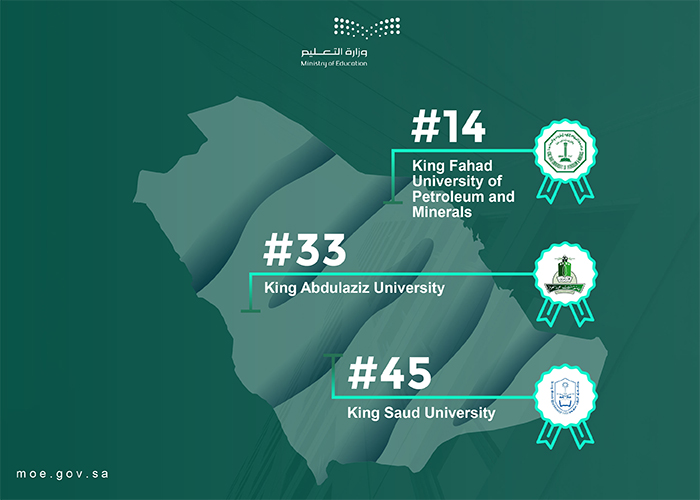
Saudi universities have achieved a new scientific achievement at the international level in the field of innovation, as three government universities were among the first 50 universities in the list of the world’s top 100 universities granted patents in 2020, according to the annual rating of the American National Academy of Inventors and Intellectual Property Owners of Universities in terms of the number of patents registered in the United States
King Fahd University of Petroleum and Minerals ranked 14th in the world in the list of universities that were granted patents in the United States last year, according to data released by the United States Patent and Trademark Office (USPTO), which highlights the vital role of patents in the university research and innovation.
King Abdul Aziz University rose to the 33rd place in the list of the top 100 universities in the world in patents 2020, and jumped 50 places within a year, as it was 83rd in 2019, and King Saud University ranked 45th in the list of universities that were granted patents in the United States.
The Ministry of Education is making great efforts to support scientific research and innovation in public universities to keep pace with the changes of the era. In addition to improving learning outcomes, and supporting the national economy in accordance with the objectives of Vision 2030. These efforts recently resulted that the Kingdom has advanced two places in the Global Innovation Index (GII) 2020 and has become the second most advanced country in the Gulf Cooperation Council (GCC) countries in this field.
The Ministry, represented by the Agency for Research and Innovation, has contributed to supporting the research and innovation system in the Kingdom, by promoting a culture of research and innovation in universities and research institutions, supporting inventors and innovators, developing their scientific skills, and enabling them to transform their ideas into projects that support economic growth to achieve sustainable development. In addition, marketing the intellectual property, granting external scholarships, and directing the compass of scientific research and innovation to find solutions more responsive to the reality of our country, as well as linking the research community and universities in an effective partnership with the public and private sectors.